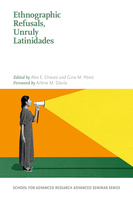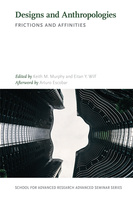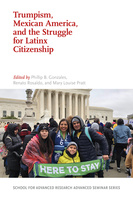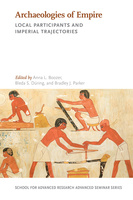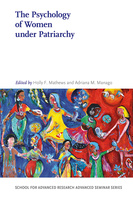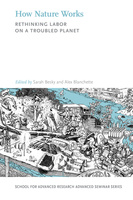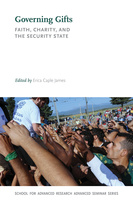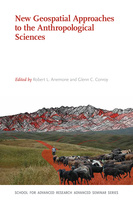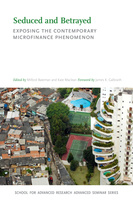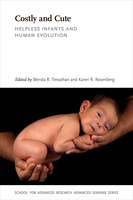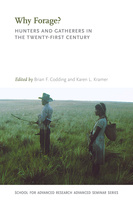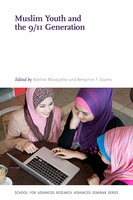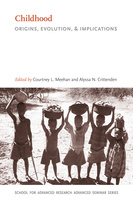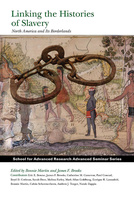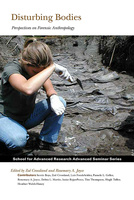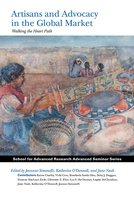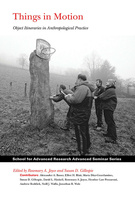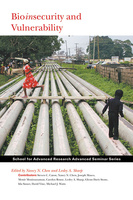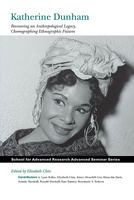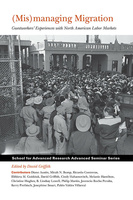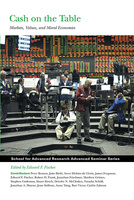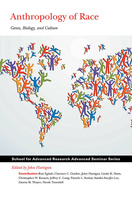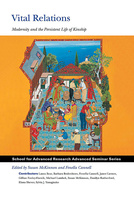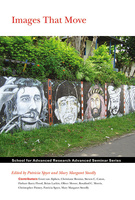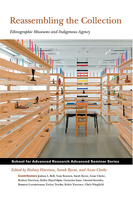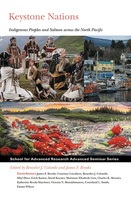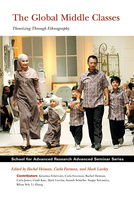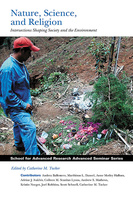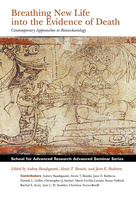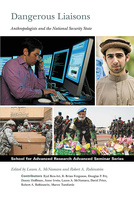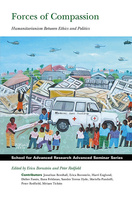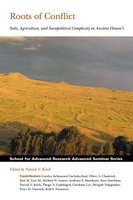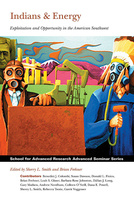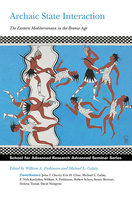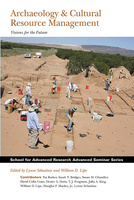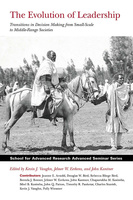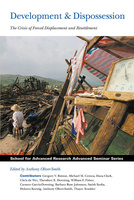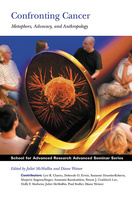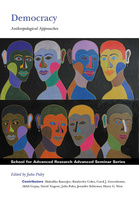The New Death
Mortality and Death Care in the Twenty-First Century
The New Death brings together scholars who are intrigued by today's rapidly changing death practices and attitudes.
Ethnographic Refusals, Unruly Latinidades
The essays in this collection do not offer simple solutions to histories of colonialism, patriarchy, and misogyny through which gender binaries and racial hierarches have been imposed and reproduced, but rather provide a crucial opportunity for reflection on and continued reimagination of the contours of Latinidad.
Designs and Anthropologies
Frictions and Affinities
The chapters in this captivating volume demonstrate the importance and power of design and the ubiquitous and forceful effects it has on human life within the study of anthropology.
Trumpism, Mexican America, and the Struggle for Latinx Citizenship
Driven by the overwhelming political urgency of the moment, the contributors to this volume seek to frame Trumpism's origins and political effects.
Archaeologies of Empire
Local Participants and Imperial Trajectories
This book demonstrates how archaeological research can contribute to our conceptualization of empires across disciplinary boundaries.
Walling In and Walling Out
Why Are We Building New Barriers to Divide Us?
The contributors to this volume illuminate the roles and uses of walls around the world--in contexts ranging from historic neighborhoods to contemporary national borders.
The Psychology of Women under Patriarchy
These feminist scholars bridge preexisting divides between bio-psychological, sociological, and cultural perspectives to explain the ways that women's desires, goals, and identities interact with culturally situated systems in order to develop more complex theories about the psychological underpinnings of patriarchy and to inform more socially progressive policies to improve the lives of women and men globally.
How Nature Works
Rethinking Labor on a Troubled Planet
The authors of this volume push ethnographic inquiry beyond the anthropocentric documentation of human work on nature in order to develop a language for thinking about how all labor is a collective ecological act.
Governing Gifts
Faith, Charity, and the Security State
Ultimately the book aims to expand the parameters of what has typically been a US-centric discussion of faith-based interventions as it explores the concepts of faith, charity, security, and governance within a global perspective.
Negotiating Structural Vulnerability in Cancer Control
The contributors utilize insights gained from studies on cancer to extend structural vulnerability beyond its original conceptualization to encompass spatiality, temporality, and biosocial shifts in both individual and institutional arrangements.
Puebloan Societies
Homology and Heterogeneity in Time and Space
Puebloan sociocultural formations of the past and present are the subject of the essays collected here.
New Geospatial Approaches to the Anthropological Sciences
Arguing that geospatial analysis holds great promise for much anthropological inquiry, the contributors have designed this volume to show how the powerful tools of GIScience can be used to benefit a variety of research programs.
Seduced and Betrayed
Exposing the Contemporary Microfinance Phenomenon
The contributors to this multidisciplinary volume consider the origins, evolution, and outcomes of microfinance from a variety of perspectives and contend that it has been an unsuccessful approach to development.
Fat Planet
Obesity, Culture, and Symbolic Body Capital
Fat Planet represents a collaborative effort to consider at a global scale what fat stigma is and what it does to people.
Costly and Cute
Helpless Infants and Human Evolution
The contributors to this volume propose that the "helpless infant" has played a role in human evolution equal in importance to those of "man the hunter" and "woman the gatherer."
Why Forage?
Hunters and Gatherers in the Twenty-First Century
Why Forage? shows that hunting and gathering continues to be a viable and vibrant way of life even in the twenty-first century.
Muslim Youth and the 9/11 Generation
The contributors to this volume--who draw from a variety of disciplines--show how the study of Muslim youth at this particular historical juncture is relevant to thinking about the anthropology of youth, the anthropology of Islamic and Muslim societies, and the post-9/11 world more generally.
Childhood
Origins, Evolution, and Implications
This collection is the first to specifically address our current understanding of the evolution of human childhood, which in turn significantly affects our interpretations of the evolution of family formation, social organization, cultural transmission, cognition, ontogeny, and the physical and socioemotional needs of children.
Linking the Histories of Slavery
North America and Its Borderlands
This volume has brought together scholars from anthropology, history, psychology, and ethnic studies to share their original research into the lesser-known stories of slavery in North America and reveal surprising parallels among slave cultures across the continent.
Disturbing Bodies
Perspectives on Forensic Anthropology
The theme of "disturbing bodies" has a double valence, evoking both the work that anthropologists do and also the ways in which the dead can, in turn, disturb the living through their material qualities, through dreams and other forms of presence, and through the political claims often articulated around them.
Artisans and Advocacy in the Global Market
Walking the Heart Path
Contributors to this book explore how crafts -- pottery, weaving, basketmaking, storytelling -- in Middle America and beyond are a means of making an intangible cultural heritage visible, material, and enduring. Each contribution shows how social science research can evolve into advocacy, collaboration, and friendship.
Things in Motion
Object Itineraries in Anthropological Practice
Complementing the concept of object biography, the contributors to this volume use the complex construct of "itineraries" to trace the places in which objects come to rest or are active, the routes through which things circulate, and the means by which they are moved.
Bioinsecurity and Vulnerability
"Biosecurity" has ballooned into an increasingly mundane aspect of human experience, serving as a catchall for the detection, surveillance, containment, and deflection of everything from epidemics and natural disasters to resource scarcities and political insurgencies.
Katherine Dunham
Recovering an Anthropological Legacy, Choreographing Ethnographic Futures
This book explores Katherine Dunham's contribution to anthropology and the ongoing relevance of her ideas and methodologies, rejecting the idea that art and academics need to be cleanly separated from each other.
(Mis)managing Migration
Guestworkers' Experiences with North American Labor Markets
Today managed migration is growing in North America. This mirrors the general growth of migration from poorer to richer countries, with more than 200 million people now living outside their natal countries. Faced with this phenomenon, managed migration enables nation-states to regulate those population movements; direct foreign nationals to specific, identified economic sectors that citizens are less likely to care about; match employers who claim labor shortages with highly motivated workers; and offer people from poorer countries higher earning potential abroad through temporary absence from their families and homelands.
Cash on the Table
Markets, Values, and Moral Economies
A great deal is at stake in understanding the moral dimensions of economic behavior and markets. Public debates over executive compensation, the fair trade movement, and recent academic inquiries into the limitations of rational-choice paradigms all point to the relevance of moral values in our economic decision-making processes. Moral values inform economic behavior.
Street Economies in the Urban Global South
This book focuses on the economic, political, social, and cultural dynamics of street economies across the urban Global South. Although contestations over public space have a long history, Street Economies in the Urban Global South presents the argument that the recent conjuncture of neoliberal economic policies and unprecedented urban growth in the Global South has changed the equation.
Anthropology of Race
Genes, Biology, and Culture
What do we know about race today? After years of debate and inquiry by anthropologists, the question remains fraught with emotion and the answer remains complicated and uncertain. Anthropology of Race confronts the challenge of formulating an effective rejoinder to new arguments and new data about race, and attempts to address the intense desire to understand race and why it matters.
Vital Relations
Modernity and the Persistent Life of Kinship
For more than 150 years, theories of social evolution, development, and modernity have been unanimous in their assumption that kinship organizes simpler, "traditional," pre-state societies but not complex, "modern," state societies. And these theories have been unanimous in their presupposition that within modern state-based societies kinship has been relegated to the domestic domain, has lost its economic and political functions, has retained no organizing force in modern political and economic structures and processes, and has become secularized and rationalized. Vital Relations challenges these notions.
Images That Move
Images play a significant part in projects of "poetic world-making" and political transformation. They participate in the production of commensuration or of incommensurability, enact moments of prophecy or exposure, and attract or repel spectators' attention. But any examination of images in motion must also recognize the blockages and breakdowns that prevent their movement, as well as the enframings or "stickinesses" that trap them in particular places and prevent them from reaching others.
Reassembling the Collection
Ethnographic Museums and Indigenous Agency
Reassembling the Collection presents innovative approaches to the study of historical and contemporary engagements between museums and the various individuals and communities who were (and are) involved in their production and consumption.
Big Histories, Human Lives
Tackling Problems of Scale in Archaeology
The contributors consider something archaeologists seldom think about: the intersection of micro-scale human experience with large-scale and long-term histories.
Keystone Nations
Indigenous Peoples and Salmon across the North Pacific
The histories and futures of Indigenous peoples and salmon are inextricably bound across the vast ocean expanse and rugged coastlines of the North Pacific. Keystone Nations addresses this enmeshment and the marriage of the biological and social sciences that have led to the research discussed in this book.
The Global Middle Classes
Theorizing through Ethnography
Surging middle-class aspirations and anxieties throughout the world have recently compelled anthropologists to pay serious attention to middle classes and middle-class spaces, sentiments, lifestyles, labors, and civic engagements.
Nature, Science, and Religion
Intersections Shaping Society and the Environment
This book is about the complicated and provocative ways nature, science, and religion intersect in real settings where people attempt to live in harmony with the physical environment. The contributors explore how scientific knowledge and spiritual beliefs are engaged to shape natural resource management, environmental activism, and political processes.
The Shape of Script
How and Why Writing Systems Change
This book builds on earlier projects about the origins and extinctions of script traditions throughout the world in an effort to address the fundamental questions of how and why writing systems change. The contributors--who study ancient scripts from Arabic to Roman, from Bronze Age China to Middle Kingdom Egypt--utilize an approach that views writing less as a technology than as a mode of communication, one that is socially learned and culturally transmitted.
Breathing New Life into the Evidence of Death
Contemporary Approaches to Bioarchaeology
Taking cues from current theoretical perspectives and capitalizing on the strengths of new and sophisticated methods of analysis, Breathing New Life into the Evidence of Death showcases the vibrancy of bioarchaeological research and its potential for bringing "new life" to the field of mortuary archaeology and the study of human remains.
Dangerous Liaisons
Anthropologists and the National Security State
Dangerous Liaisons is a book about intersections. It is a product of two year's worth of discussion among a group of ethnographers from four different countries studying war, violence, the military, and the state.
Enduring Conquests
Rethinking the Archaeology of Resistance to Spanish Colonialism in the Americas
Enduring Conquests presents new interpretations of Native American experiences under Spanish colonialism and challenges the reader to reexamine long-standing assumptions about the Spanish conquests of the Americas.
Forces of Compassion
Humanitarianism between Ethics and Politics
Suffering and charity have a long history. Both human sorrows and attempted remedies were familiar features of life in earlier eras and religious traditions, however, during the final decades of the twentieth century, natural disasters and civilian casualties of war transformed into "humanitarian crises." In these recurring dramas presented by international media, an extensive network of interstate entities and nongovernmental organizations (NGOs) supplies assistance to victims.
Pharmaceutical Self
The Global Shaping of Experience in an Age of Psychopharmacology
This book addresses a critical contemporary issue--the worldwide proliferation of pharmaceutical use. The contributors explore questions such as: How are culturally constituted selves transformed by regular ingestion of pharmaceutical drugs? Does "being human" increasingly come to mean not only oriented to drugs but also created and regulated by them? From the standpoint of cultural phenomenology, does this reshape human "being"?
Roots of Conflict
Soils, Agriculture, and Sociopolitical Complexity in Ancient Hawai'i
Roots of Conflict presents the efforts of a team of social and natural scientists to understand the complex, systemic linkages between land, climate, crops, human populations, and their cultural structures.
Indians and Energy
Exploitation and Opportunity in the American Southwest
The authors consider the complex relationship between development and Indian communities in the Southwest in order to reveal how an understanding of patterns in the past can guide policies and decisions in the future.
Archaic State Interaction
The Eastern Mediterranean in the Bronze Age
By using a specific case study, the contributors to this book aim to help establish a common theoretical ground for investigating how humans and the societies they built interacted over time.
Archaeology and Cultural Resource Management
Visions for the Future
By most estimates, as much as 90 percent of the archaeology done in the United States today is carried out in the field of cultural resource management. The contributors hope that this book will serve as an impetus in American archaeology for dialogue and debate on how to make CRM projects and programs yield both better archaeology and better public policy.
The Evolution of Leadership
Transitions in Decision Making from Small-Scale to Middle-Range Societies
This book brings together the perspectives of cultural anthropologists and archaeologists to explore why and how leadership emerges and variously becomes institutionalized among disparate human societies.
Global Health in Times of Violence
Over 24 million people have died in these conflicts, and millions more suffered illness and injury. In this volume, leading scholars and practitioners examine the impact of structural, military, and communal violence on health, psychosocial well-being, and health care delivery. By investigating the fields of violence that define our modern world, the authors are able to provide alternative global health paradigms that can be used to develop more effective policies and programs.
Development and Dispossession
The Crisis of Forced Displacement and Resettlement
Resettlement has been so poorly planned, financed, implemented, and administered that these projects end up being "development disasters." Because there can be no return to land submerged under a dam-created lake or to a neighborhood buried under a stadium or throughway, the solutions devised to meet the needs of people displaced by development must be durable. The contributors to this volume analyze the failures of existing resettlement policies and propose just such durable solutions.
Confronting Cancer
Metaphors, Advocacy, and Anthropology
In this book, anthropologists examine the lived experiences of individuals confronting cancer and reveal the social context in which prevention and treatment may succeed or fail.
Democracy
Anthropological Approaches
While previous scholars of democracy have proposed one definitive model after another, the authors in this work suggest that democracy is by nature an open ended set of questions about the workings of power--questions best engaged through the dialogical processes of fieldwork and ethnographic writing.


